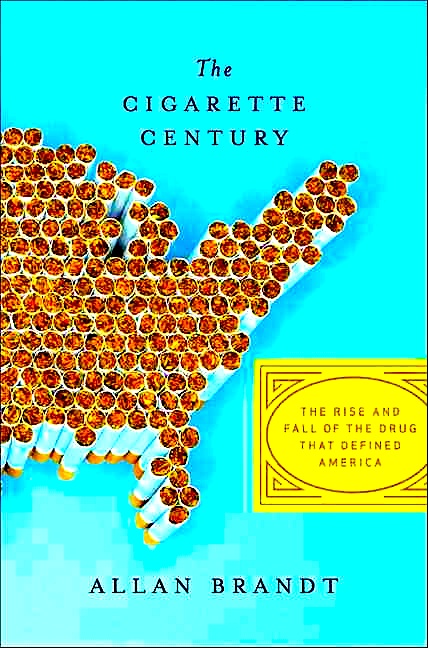FRESH AIR![]()
Nora Volkow, director of the National Institute on Drug Abuse, ranks as one of the U.S.’s leading addiction researchers. She’s helped demonstrate that addiction is in fact a disease — a disease of the brain — and that all addictions, whether it’s to drugs, alcohol, tobacco, sex, gambling or even food, are more alike than was previously thought. Volkow, who’s the great-granddaughter of Russian revolutionary Leon Trotsky, grew up in Mexico City — in the house where her famous ancestor was assassinated. PLUS, food scientist Massimo Marcone travels the world’s remotest corners to investigate bizarre food “delicacies”: cheese infested with squirming maggots, coffee brewed from coffee beans extracted from the feces of a cat-like creature, and so on. Marconi teaches food science at the University of Guelph, in Ontario, and his new book is In Bad Taste? The Adventures and Science Behind Food Delicacies.
previously thought. Volkow, who’s the great-granddaughter of Russian revolutionary Leon Trotsky, grew up in Mexico City — in the house where her famous ancestor was assassinated. PLUS, food scientist Massimo Marcone travels the world’s remotest corners to investigate bizarre food “delicacies”: cheese infested with squirming maggots, coffee brewed from coffee beans extracted from the feces of a cat-like creature, and so on. Marconi teaches food science at the University of Guelph, in Ontario, and his new book is In Bad Taste? The Adventures and Science Behind Food Delicacies.
RADIO TIMES
Hour 1
![]()
Part One – What’s holding up the PA budget? We’ll talk about why a plan for alternative energies has created a budget stalemate. Guests STEPHEN HERTZENBERG, executive director of the Keystone Research Center and MATTHEW BROUILLETTE president and CEO of the Commonwealth Foundation. Part Two — The history of Cigarettes in American politics and culture. We talk with ALLAN BRANDT author of The Cigarette Century: The Rise, Fall, and Deadly Persistence of the Product that Defined America.
Hour 2![]()
Iraq: Mistakes were made, so has anyone been held accountable? We’ll hear from FAIZ SHAKIR author of the new report Architects of War: Where Are They Now? Shakir is research director for the Center for American Progress. Then DAVID CORN, Washington DC editor for The Nation magazine and co-author of Hubris: The Inside Story of Spin, Scandal, and the Selling of the Iraq War.
THE WORLD CAFE

The biggest cliche about Bright Eyes — aka 24-year-old indie-pop pinup boy Conor Oberst — is that he’s emerged as the latest “new Dylan,” a Mr. Tambourine Man for the O.C. Nation. Like all cliches, this one’s been worn meaningless by overuse. And yet, like any good cliche it’s essentially true. Heck, Oberst already got props from the last “new Dylan” who amounted to anything: Bruce Springsteen.
Like Dylan in his prime, Oberst writes long, elliptical narratives–weaving word-clotted threads of angst and regret, anger and shame, ecstasy and joy, through a camel’s eye of symbolism, creating word circuses that fascinate even when they flirt with meaninglessness. As with Dylan’s songs, when you boil them all down, they’re essentially about one thing: the wonder of consciousness. Baby I’m amazed, therefore I am.
 Both Bob Dylan and Oberst come from the Midwest — Dylan from Hibbing, Minn., and Oberst from Omaha, Neb. (his dad actually works in that iconic Mutual of Omaha skyscraper). Both migrated to New York City to pursue their chemical fortunes, riding into town on a ribbon of personal myth and self-invention. Both are — or in Dylan’s case, were — J.D. Salinger’s Holden Caulfield incarnate: impossibly young, madly poetic and profoundly alienated.
Both Bob Dylan and Oberst come from the Midwest — Dylan from Hibbing, Minn., and Oberst from Omaha, Neb. (his dad actually works in that iconic Mutual of Omaha skyscraper). Both migrated to New York City to pursue their chemical fortunes, riding into town on a ribbon of personal myth and self-invention. Both are — or in Dylan’s case, were — J.D. Salinger’s Holden Caulfield incarnate: impossibly young, madly poetic and profoundly alienated.
Both mastered the art of courting attention while seeming to want to be left alone. Both have voices that are, to put it charitably, acquired tastes, and yet they’ve both managed to convert a laughably limited range and a very casual relationship with pitch into a remarkably expressive instrument. Lastly, and most importantly, both have managed to express definitively what it feels like to be young and alive and trying to mapquest meaning with only an acoustic guitar for a compass. As a result, they’ve become existential weathermen for large, loyal followings eager to know which way the metaphysical winds are blowing. —JONATHAN VALANIA
BRIGHT EYES: Four Winds
